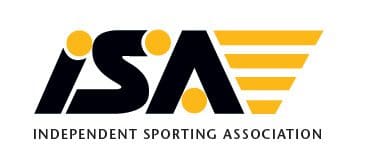Coaches
Coaches should develop in their players respect for the judgement of all officialsPlayers
Players are expected to be modest in success and generous in defeatSpectators
Good play by either team should be recognised by applauseOfficials
Be consistent, objective and courteous when making decisions
The ISA seeks to uphold high standards of personal conduct consistent with the ideals of competitive sport and within the best tradition of collegiality amongst independent schools.
The pursuit of excellence in games and the enhancement of positive educational experiences for all students are of paramount importance to the ISA approach to sport. ISA schools are expected to place the highest priority on players’ safety and to ensure that coaches, officials and administrators are fully aware of the ISA Code of Conduct as well as the particular rules and safety requirements in their sport.
ISA schools are also expected to provide competent First Aid and support for injured players. The ISA Code of Conduct outlines the spirit of the Association and states clear expectations for all who participate in games conducted under the aegis of the ISA.

Full ISA Code Of Conduct
ISA Diversity Statement
The Heads of member schools of the Independent Sporting Association are committed to the inclusiveness of the diversity of our schools and to all who participate in competition as players, officials or spectators. The Association embraces the right of every individual to be respected absolutely.
The Independent Sporting Association recognises and affirms the right of each individual to respect within our competition and we embrace the ethnic and religious diversity of our students, their teachers and their schools.
The Association does not tolerate discrimination explicit or covert towards anyone involved in competition; neither does it countenance vilification of players, officials, parents or spectators and will act decisively in any instance where such unacceptable behaviour occurs. Further, the Association reserves the right to impose sanctions on any school, their players, spectators or officials where a proven incident of discrimination or vilification is not addressed adequately.
1 Guidelines for Coaches
1 GUIDELINES FOR COACHES
1.1 The Coach is an ambassador, educator and guardian of the ethical values of fair play. All participants are deserving of equal attention and opportunities to learn appropriate behaviour and skills.
1.2 It is imperative for coaches to be clear on the standards and behaviours associated with amateur sporting ideals. Coaches must always be ready to combat those views widely expressed in the media that run counter to the spirit of the amateur ethic.
1.3 Coaches should recognize that games are for enjoyment, and satisfaction comes from doing one’s best for the team.
1.4 Coaches should develop in their players respect for the judgment of all officials (umpires, referees, touch judges, etc) and be particularly careful to reflect this in all public expressions of opinion. The ISA is committed to a zero tolerance approach for any abuse towards officials through negative comments or actions.
1.5 The home coach should welcome the visiting coach and encourage the Captain of the team to seek out the visiting Captain.
1.6 Coaches should be reasonable in their expectations of the players and in their demands on the players’ time and energy. They should be sensitive to the age, skill and physical maturity of their players.
1.7 It is an educational responsibility of coaches to acquaint their players thoroughly with the rules or laws of the game as these provide structure and order. For this reason, coaches should continually update their knowledge of the game, and schools should ensure this occurs.
1.8 Coaches must be familiar with their ISA sport guidelines, the most notable being the philosophy of the Association and the application of the Mercy Rule.
1.9 The coach is to support and encourage the players. Criticism should be focused on the mistake and no personal derogatory remarks should be made. There should be no recriminations in defeat.
1.10 Where it is permitted under the rules of the game, all coaching from the sidelines must be restrained, tactful, and infrequent, and substantially out of earshot of spectators.
1.11 The role of the coach should be understated rather than overstated.
1.12 Coaches should warn those players who are losing their composure and becoming too physical, and if necessary, remove them from the playing field/court should such warnings not be heeded.
1.13 Coaches should not encroach on the court or field of play except in exceptional circumstances.
1.14 Coaches are to accept player safety as an essential priority and correct techniques are to be insisted upon. Under no circumstances are matches to start or to continue under conditions which a coach considers contentious, e.g. the absence of an appropriate umpire or referee, or an unsafe playing surface.
1.15 Coaches must notify their School Sports Convenor if any student from their team is sent off. The student(s) must be supervised by a school official after being dismissed from the field. It is the general rule that students will be suspended for at least one game or similar penalty as outlined by the rules for individual sports.
2 Guidelines for Players
2 GUIDELINES FOR PLAYERS
2.1 Once committed to a sport for the season, players must honour that commitment wholeheartedly. This same commitment applies to ISA representation.
2.2 Players are expected to be modest in success and generous in defeat, not showing in either case undue emotion.
2.3 Players are also expected to acknowledge, willingly and openly, good play by either school. Players should not celebrate the opposition’s mistakes.
2.4 Players should be positive in their approach to games and should adhere strictly to the rules/laws and spirit of the game. The referee or umpire’s decision is final, and the Captain of the team is the only one who may ask for clarification of a decision at the appropriate time.
2.5 The ISA is committed to a zero tolerance approach for any abuse towards officials through negative comments or actions.
2.6 Players shall never resort to violent or abusive language or behaviour or engage in unfair or illegal tactics to gain an advantage. Racial vilification will not be tolerated under any circumstances.
2.7 Players should be punctual and adhere to their school’s dress code. The home team – and in particular the Captain – should welcome the visiting team and its Captain. At the conclusion of the game acknowledgment and thanks should be given to referees, umpires, officials such as scorers/touch judges and the opposition.
3 Guidelines for Spectators
3 GUIDELINES FOR SPECTATORS
3.1 Spectators must remember that this is “kids” school sport, let them have fun. It is not the World Cup.
3.2 Spectators are expected to be positive role models. They must behave respectfully and courteously towards players, coaches, match officials and other spectators.
3.3 Spectators are not to approach or address game officials or any of the opposing players, spectators or staff. If a spectator has a genuine concern, this needs to be presented to their own school official who will determine any action to be taken.
3.4 Unless invited onto a field/court, spectators must never encroach onto the field/court.
3.5 Barracking should be enthusiastic and positive, but not designed to heckle, denigrate or unsettle opponents. For example, barracking during a free throw or a kick at goal and so forth is always bad sportsmanship.
3.6 Sledging and negative comments are totally unacceptable. Good play by either team should be recognised by applause.
3.7 It is never right to express disapproval of a referee or umpire’s decision, irrespective of his/her age. The ISA is committed to a zero tolerance approach for any abuse towards officials through negative comments or actions.
3.8 Vocal support for any team should never encourage violence, rough or illegal play.
3.9 Visitors to the grounds should co-operate fully with any regulations or requests made by the host school, such as car parking, seating, dressing rooms and the placing of spectators. At all times visitors should leave the area tidy and free of rubbish when they leave.
3.10 Alcohol is not to be consumed at ISA fixtures.
4 Guideline for Officials
4 GUIDELINES FOR OFFICIALS – Referees & Umpires
4.1 Control of spectators is the responsibility of the school official with whom the spectators are associated. Officials will seek to compliment and encourage all participants.
4.2 Every effort must be made to be consistent, objective and courteous when making decisions. Officials should be conscientious and punctual.
4.3 Officials are expected to encourage good sportsmanship and the promotion of respect for all opponents. Sledging is not to be tolerated.
4.4 In the management of the game, it is important to emphasise the spirit of the game rather than the errors.
4.5 All officials will model the highest standard of sportsmanship. Behaviour and comments should be exemplary.
4.6 Officials are expected to keep up to date with the latest rules/laws and trends in officiating.
4.7 Officials are expected to be aware of the current ISA Sport Guidelines, in particular the Mercy Rule.
4.8 The safety and welfare of the participants is the primary concern for officials.
4.9 Officials are expected to be familiar with and uphold the ISA Diversity Statement.
5 Guideline for Administrators
5 GUIDELINES FOR ADMINISTRATORS
5.1 Consistent with the educational purpose of ISA Sport, administrators will endeavour to involve students in planning, leadership, evaluation and decision-making related to the activity.
5.2 All students should have equal opportunities to participate.
5.3 Students shall be encouraged to explore pathways for participation and involvement not only as players but also as coaches, referees, administrators etc.
5.4 Remember that students participate for their enjoyment and benefit. Do not overemphasise awards.
5.5 Coaches and officials are expected to highlight appropriate behaviour and skill development; administrators will create opportunities to improve the standard of coaching and officiating.
5.6 Administrators will seek to ensure that everyone involved in ISA school sport emphasises fair play, fun, good citizenship and game quality, rather than focusing on winning at all costs.
5.7 This code of behaviour shall be promulgated to spectators, officials, parents, coaches, players and the media, along with the expectation that it be adhered to.
5.8 Administrators, above all, must embody the values, behaviours and practices they expect from others, as expressed in this Code.


